Kushner: Our Plan is Bid to Save 2-State Solution; Israel was Eating up the Land
Trump adviser warns Palestinians that if they continue to reject Trump peace proposal ‘the situation is just going to get worse and worse for them’; says US won’t ‘chase’ Ramallah.
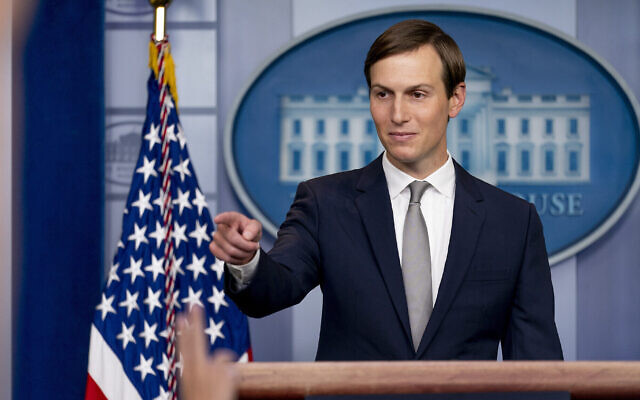
Senior White House adviser Jared Kushner said on Wednesday that the Trump administration’s peace plan is an attempt to “save the two state solution” because it stops Israel from further expanding its presence in the West Bank.
“The reality today is that a lot of this land is inhabited with Israelis,” Kushner told reporters during a phone briefing ahead of the White House signing next week of the Israel-UAE normalization deal.
Kushner said the Trump plan presented in January this year was still on the table even though it had been rejected by the Palestinians, and that it provides them with their best hope of stopping continued Israeli settlement expansion in the West Bank, which Israel captured in the 1967 Six Day War.
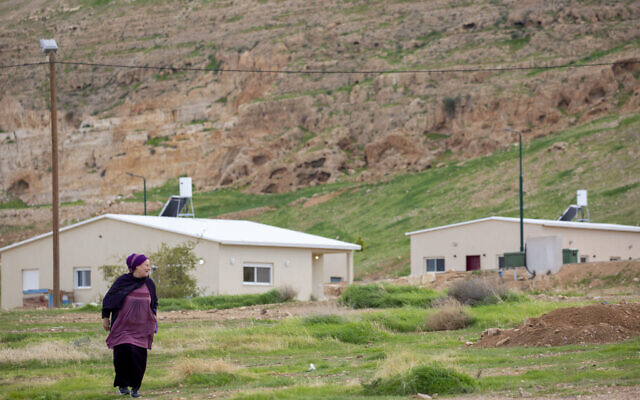
“What we did with our plan was we were trying to save the two-state solution, because… if we kept going with the status quo… ultimately, Israel would have eaten up all the land in the West Bank,” Trump’s son-in-law and senior adviser specified. The comments mark some of the most specific the Trump administration has made at odds with Israel’s expanding settlement enterprise.
Prime Minister Benjamin Netanyahu has campaigned since 2019 on a plan to annex parts of the West Bank, the Biblical Judea and Samaria, in coordination with the Trump administration. But the administration gave mixed signals about the idea in recent months, and the suspension of unilateral annexation plan was one of the main stated conditions of the August 13 Israel-UAE normalization agreement. Netanyahu has insisted annexation remains “on the table.”
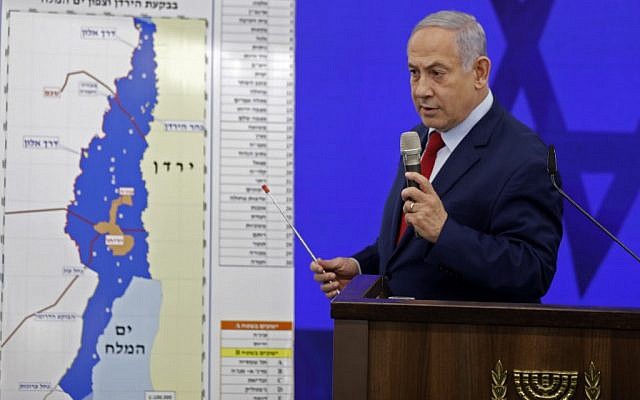
Kushner said that while the Trump peace plan allows Israel to maintain roughly 30% of the West Bank, the semi-contiguous territory that remains is enough for the Palestinian Authority to turn into a state.
“And so, right now, you have a situation where there is land that could become a Palestinian state. It is possible to connect it, but the land that Israeli settlers are in right now is land that Israel controls, and the odds of them ever giving it up is unlikely,” Kushner said. “That’s why the map that we drew was what we thought was a realistic map… we played the ball as it lies, right? We took the realities in the world today and we drew a map based on that, knowing what was achievable and what was not achievable.
Kushner also told the Palestinians that it was up to them to come to the table to negotiate and that the US would not “chase” them, warning that if they continue to reject the plan, their situation would likely only get worse.
“My fear for the Palestinians is that if they do what they’re very good at doing, which is figure out how to not make a deal and play the victim card, then what’s going to happen is, you know, more time is going to go by and the situation is just going to get worse and worse for them,” he said.
Kushner said the Trump plan aimed to break the failed paradigms of previous peace plans. “The reason why they never accomplished anything was because both parties were getting what they wanted.
“Every time a negotiation failed, Israel took more land and the Palestinians got more money from the international community.”
On Sunday, Hebrew media reported that Defense Minister Benny Gantz is working to advance 5,000 settlement homes through various planning stages. Settler leaders claimed the government had imposed a de-facto building freeze due to regional developments, such as the normalization agreement with UAE.
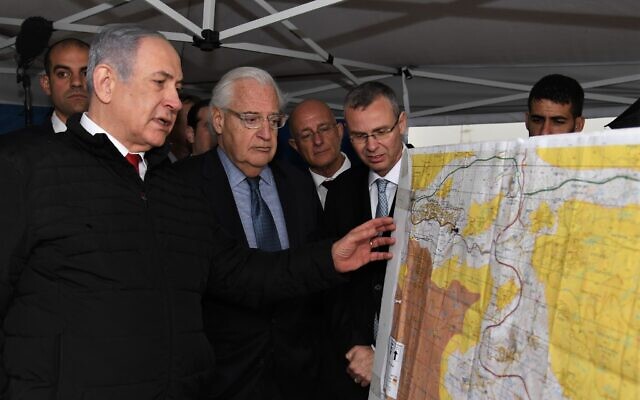
That deal saw Netanyahu agree to suspend plans to annex those parts of the West Bank that the Trump plan envisions being included in Israel. However, the premier has insisted that the compromise is temporary and that he has not removed annexation from his agenda.
“In the first meetings with [PA] President Abbas, he said, ‘If you could get Israel to agree to a map, then the rest will be easy to figure out.’ We did better than that: We got them [the Israelis] to agree to a state with a map,” Kushner said.
Netanyahu has said he does not call what the Palestinians are being offered in the peace plan a “state,” but has no issue with the Trump administration labeling the territory as such.
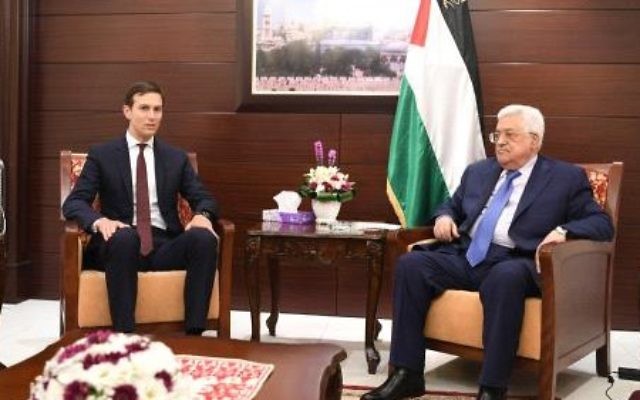
The Palestinians see the West Bank as the heartland of a future independent state and East Jerusalem as their capital. Most of the international community supports their position, but Trump has reversed decades of US foreign policy by recognizing Jerusalem as Israel’s capital and moving the American Embassy there. He’s also closed Palestinian diplomatic offices in Washington and cut funding to Palestinian aid programs.
Abbas has rejected the Trump plan and refused to engage with the administration over it, castigated the UAE for its deal with Israel, and in recent weeks deepened his contacts with the Gaza-ruling Islamist terror group Hamas.



comments